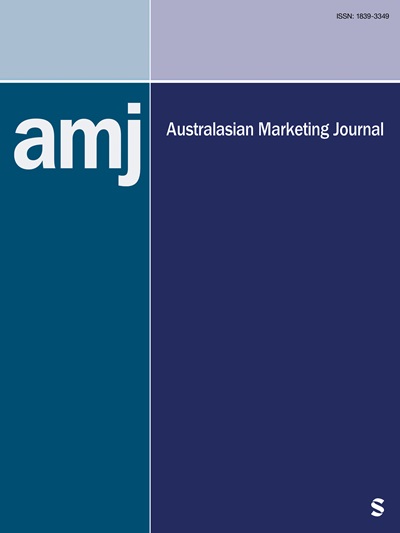Advancing Food Well-Being in Poverty Through Intersectionality
IF 4
Q2 BUSINESS
引用次数: 4
Abstract
This article explores the importance of employing intersectionality when investigating food well-being (FWB) in poverty framework. We argue that this approach provides a more nuanced and realistic lens for both marketers and policy makers when developing FWB strategies in the context of poverty. To this end, this article focuses on the intersection of ethnicity and gender to examine food consumption practices of two groups of women living in poverty in Bangladesh. Specifically, the research design uses semi-structured interviews with 16 Santal (ethnic minority) and 14 Muslim (ethnic majority) women to explore commonalities and differences in their consumption experiences. The findings provide new insights into how marketers and policy makers can engage with diverse ethnic communities to enhance their FWB. This article contributes to the FWB literature by introducing intersectionality as a mechanism to uncover differences in advantage and disadvantage based on overlapping categories of ethnicity, gender, and class. Implications for marketers and policy makers include (a) developing food policies that pay attention and respect to cultural norms and sociohistorical experiences, (b) creating and shaping social networks, (c) investing in infrastructure and utilities that prioritize ethnic minorities, and (d) seeking out jugaad (frugal) innovations.通过交叉促进贫困地区的粮食福祉
本文探讨了在贫困框架下调查粮食福祉时采用交叉性的重要性。我们认为,在贫困背景下制定FWB战略时,这种方法为营销人员和政策制定者提供了一个更细致、更现实的视角。为此,本文将重点放在种族和性别的交叉点上,以考察孟加拉国两个贫困妇女群体的食品消费习惯。具体而言,研究设计使用了对16名Santal(少数民族)和14名穆斯林(多数民族)女性的半结构化访谈,以探索她们消费体验的共性和差异。这些发现为营销人员和政策制定者如何与不同种族社区接触以提高他们的FWB提供了新的见解。本文通过引入交叉性作为一种机制来揭示基于种族、性别和阶级重叠类别的优势和劣势差异,为FWB文献做出了贡献。对营销人员和政策制定者的影响包括:(a)制定关注和尊重文化规范和社会历史经验的食品政策,(b)创建和塑造社会网络,(c)投资于优先考虑少数民族的基础设施和公用事业,以及(d)寻求jugaad(节俭)创新。
本文章由计算机程序翻译,如有差异,请以英文原文为准。
求助全文
约1分钟内获得全文
求助全文
来源期刊

Australasian Marketing Journal
BUSINESS-
CiteScore
14.90
自引率
16.70%
发文量
25
期刊介绍:
The Australasian Marketing Journal (AMJ) is the official journal of the Australian and New Zealand Marketing Academy (ANZMAC). It is an academic journal for the dissemination of leading studies in marketing, for researchers, students, educators, scholars, and practitioners. The objective of the AMJ is to publish articles that enrich and contribute to the advancement of the discipline and the practice of marketing. Therefore, manuscripts accepted for publication will be theoretically sound, offer significant research findings and insights, and suggest meaningful implications and recommendations. Articles reporting original empirical research should include defensible methodology and findings consistent with rigorous academic standards.
 求助内容:
求助内容: 应助结果提醒方式:
应助结果提醒方式:


